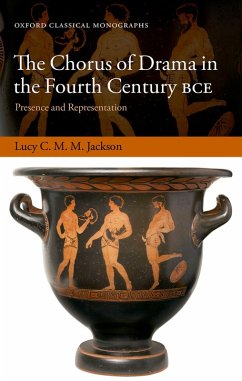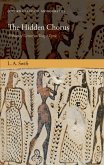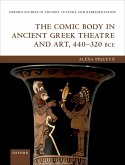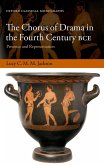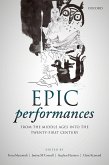The Chorus of Drama in the Fourth Century BCE seeks to upend conventional thinking about the development of drama from the fifth to the fourth centuries and to provide a new way of talking and thinking about the choruses of drama after the deaths of Euripides and Sophocles. Set in the context of a theatre industry extending far beyond the confines of the City Dionysia and the city of Athens, the identity of choral performers and the significance of their contribution to the shape and meaning of drama in the later Classical period (c.400-323) as a whole is an intriguing and under-explored area of enquiry. This volume draws together the fourth-century historical, material, dramatic, literary, and philosophical sources that attest to the activity and quality of dramatic choruses and, having considered the positive evidence for dramatic choral activity, provides a radical rethinking of two oft-cited yet ill-understood phenomena that have traditionally supported the idea that the chorus of drama 'declined' in the fourth century: the inscription of ????*u~ ??? ??*s in papyri and manuscripts in place of fully written-out choral odes, and Aristotle's invocation of embolima (Poetics 1456a25-32). It also explores the important role of influential fourth-century authors such as Plato, Demosthenes, and Xenophon, as well as artistic representations of choruses on fourth-century monuments, in shaping later scholars' understanding of the dramatic chorus throughout the Classical period, reaching conclusions that have significant implications for the broader story we wish to tell about Attic drama and its most enigmatic and fundamental element, the chorus.
Dieser Download kann aus rechtlichen Gründen nur mit Rechnungsadresse in A, B, BG, CY, CZ, D, DK, EW, E, FIN, F, GR, HR, H, IRL, I, LT, L, LR, M, NL, PL, P, R, S, SLO, SK ausgeliefert werden.

